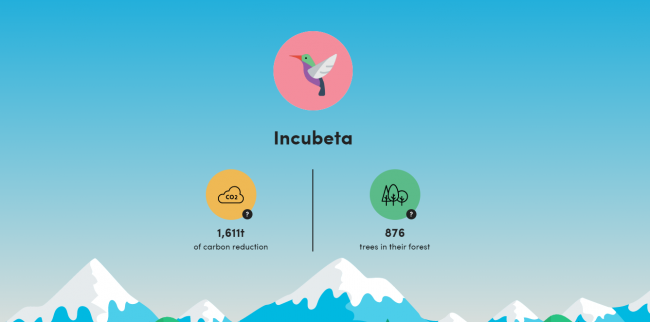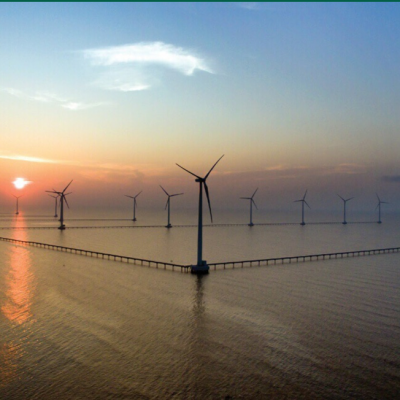Looking Back…
Looking back at the past two years since its inception, we’re proud of our journey so far to quantify the environmental impact of digital advertising with a founding group of clients. The journey from here seeks to raise wider awareness and identify how to drive change.
Launched in 2021, the first year of our carbon offsetting initiative was centered around research and measurement, partnering with Ecologi and identifying clients that we could work with – including FatFace and Ganni. Moving into 2022, our focus was on program expansion, building upon the relationship we had with Ecologi and expanding the number of onboarded clients. Not only was the expansion of our Ecologi partnership a focus, but Incubeta’s internal Sustainability Committee also explored other potential partnerships and methods that could support our business efforts e.g. being the first Google partner to be involved in their sustainability playbook initiative.
In 2021 we were proud to onboard three clients and offset 345 tons of carbon (the equivalent of 855,945 miles in a car). In 2022 we more than doubled this, onboarding 10 clients and offsetting 1,265 tons of carbon.

How Does It Work?
Few know that digital advertising is a major contributor to global carbon emissions, with the internet contributing to, and making up 3.76% of total greenhouse gas emissions. A bigger impact than that of the airline industry. Breaking this down into key channels we calculated that:
- 0.7g of carbon is generated for every search
- 1.76g of carbon is generated for every multi-format webpage
- 4g of carbon is generated for every standard email
To get even more granular, a typical online ad campaign would emit 5.4 tonnes of carbon dioxide – which is close to being under half (43%) of the average annual carbon footprint of a person in the UK.
With this in mind, we’ve built a calculation that takes into account Environment (Search/Social/Web), Format (Text Ad/Image/Video) and Contribution to Page Load (Search/Result/Infeed/Web Ad/Editorial) to work out the estimated impact of digital advertising for our clients to then assign a ‘carbon responsibility’ score.
(Environment x Format x Contribution) X Aggregate Impression Volume = Estimated Digital Carbon Impact (Carbon Tonnes)
Taking into account total impressions served over an annual period, we are now able to provide our clients with a view of their annualized digital carbon footprint for the paid media channels that Incubeta is running on behalf of our clients. From here we can offset the estimated carbon footprint through our partnership with Ecologi.
But this is just the beginning, and 2023 will see us expand on this, increasing the transparency around digital marketing and the true impact it has on the environment.
Looking Forward…
In 2023, and beyond, we want to take our pledge one step further, injecting sustainability into all that we do, and providing our client teams with the means to calculate digital emissions, scale awareness and provide visibility of the environmental impact of digital marketing. At Incubeta we try to mitigate the mess before it happens – suggesting and promoting sustainable solutions to our clients.
Next year will be about taking the infrastructure and insight we have, moving beyond paid advertising to the complete customer journey. Looking as far down the line as customer experience, and how clients can make their customers more environmentally aware. The concept of ‘tokenism’ is often thrown around when it comes to sustainability, but we believe that we can truly make a difference in the years to come – encouraging sustainable consideration in the planning and buying process of digital marketing. With our initiative we can show clients the exact impact that their advertising has on the environment and recommend alternatives that are environmentally smarter, while still driving performance.
From establishing awareness of its importance, we’ve set our sights on providing recommendations of formats and placement that deliver against the campaign KPIs whilst being less impactful on the environment. Media buying is one part of the ecommerce food chain, with web experience, shipping, logistics, all having a responsibility to sustainable practice.
—
For more information on how you can make your digital marketing more environmentally friendly get in touch with our specialists today.



